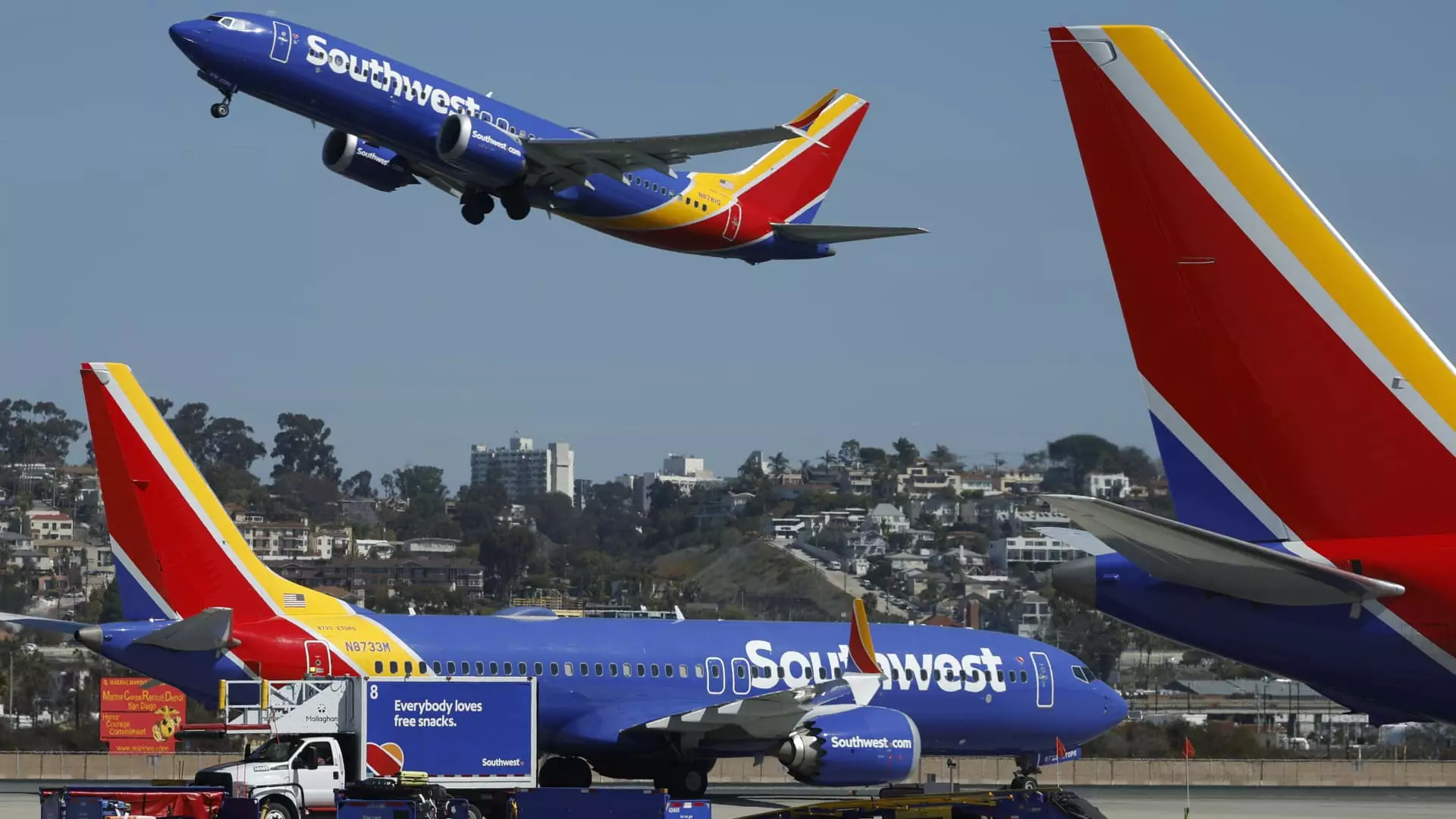Southwest Airlines has long been synonymous with low-cost travel, captivating customers with its quirky approach and no-frills service. However, the recent announcement by CEO Bob Jordan at an airport industry conference signals a significant pivot for the airline. The company is considering introducing airport lounges, revamped seating configurations, and even the prospect of long-haul international flights. This is not just a market expansion—it’s a brave reimagining of their identity that has been anchored in budget-friendly travel for over five decades.
Jordan’s acknowledgment of shifting consumer needs is both transparent and necessary. The travel landscape is evolving, influenced by the demand for more personalized experiences and amenities that allow customers to travel in comfort and style. The question must be posed: will this move dilute the unique brand essence that has attracted millions to choose Southwest over its more traditional competitors? It seems that Southwest, perhaps more than ever, is grappling with the pressures of transformation and the risks it entails.
Risking Tradition for Modern Demands
Southwest’s decision to reevaluate its offerings indicates the inevitability of change in the airline industry. Traditional offerings—such as open seating and free checked bags—have made the airline a household name, yet these features are now commonplace among rival carriers. The move away from these conventions raises an eyebrow of skepticism among long-time customers. Will they still feel that Southwest’s offerings align with the spirit of “low-cost travel”? Or will it become just another option among a sea of competitors, losing the distinctive character that once set it apart?
Jordan’s mention of “no-frills basic economy tickets” and the implementation of bag fees marks a sharp turn towards contemporary pricing models that resonate with larger airlines. The challenge lies in not isolating or alienating a loyal customer base that values Southwest’s low-cost, hassle-free approach. This delicate balancing act creates unease; will the push for premium services lead to a gradual erosion of price sensitivity and customer loyalty among its core constituents?
Feeding the Hunger for Luxury
The airline market is indeed experiencing a resurgence in luxury demands, especially among consumers willing to pay a premium for enhanced offerings. With competitors like Delta and American Airlines doubling their investment in airport lounges and spacious seating, there is a tangible appetite for more elegant travel options. Jordan’s insight about Nashville—an apparent hotspot for luxury cravings—demonstrates an awareness of downtrodden opportunities within Southwest’s existing market territories. Yet, merely acknowledging consumer wants isn’t enough; successfully executing these enhancements will require a formidable shift in their business model.
The crux of the question lies in whether Southwest can maintain its distinctly casual ethos while scaling up to meet higher-end desires. The cargo of “cheap and cheerful” must navigate the turbulent skies of luxury. Expansion into long-haul international flights signifies ambition but may also invite scrutiny about whether Southwest’s pilots are equipped to navigate complexities significantly different from short-haul domestic operations.
Embracing International Horizons
Jordan’s hints of potential international partnerships and a future fleet capable of long-haul travel hint at an ambitious trajectory. However, this raises further questions: How does an airline synonymous with domestic routes adapt to international challenges? What will define the Southwest experience when flying over the ocean, away from the familiar culture and operation of U.S. airspace? Authenticity must remain intact; Southwest must not only expand its offerings but also its capability to deliver a cohesive experience that feels genuine to its brand.
While some industry leaders have started to roll out luxury offerings, Southwest’s deep-rooted traditions may stifle its ability to pursue such a dramatic leap. The airline must not overlook what made it successful in the first place. However alluring the draw of luxury may be, it’s essential that Southwest maintains the charm and connection with customers that has been synonymous with its service over the years. Embracing this exciting yet unpredictable future while staying true to its humble beginnings poses an extraordinary challenge that could define its next chapter in the competitive aviation landscape.

Leave a Reply